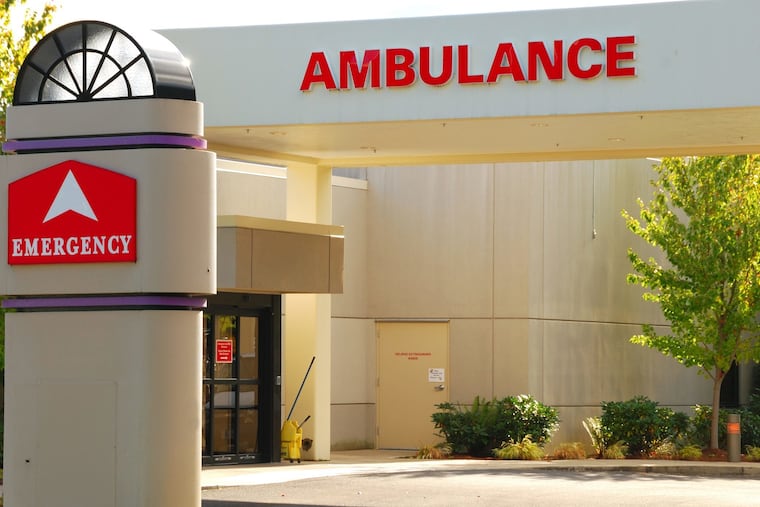I’m a black physician. I understand when patients say they don’t trust medicine | Opinion
I am a black Florida-based physician who grew up in the worst part of Philadelphia, and a community organizer. When I hear a story about medical malpractice, I investigate further.

On a recent night while on duty at my hospital, I was called to the room of a 60-year-old male patient from Puerto Rico suffering intractable pain and vomiting. He had metastatic cancer, which he knew was at end stage. Yet he refused medical interventions such as intubation or resuscitation.
Upon questioning him and reviewing his chart, I learned he was not fond of hospitals or medical treatment, as he had previously turned down life-extending chemotherapy.
He said he’d never accept chemotherapy from any doctor — even if it could cure his disease. He recounted that a white physician who came to Puerto Rico had killed unsuspecting healthy people using the same chemicals used to treat cancer. One of the victims was his relative, and the story was passed down through the generations along with a warning: Never trust doctors — especially cancer doctors.
I am a black Florida-based physician who grew up in the worst part of Philadelphia, and a community organizer with groups including Florida’s Dream Defenders. When I hear a story like this one, I investigate further.
What I have found is that, just as Michelle Alexander, author of The New Jim Crow, masterfully revealed systemic racism in criminal justice, medicine has similar roots. Instead of harsh sentencing and disproportionately high incarceration rates, we have numerous disparities in morbidity and mortality among black and brown patients.
If white people were under-treated for pain at the same rate black people are today, institutions and individuals would be swiftly held accountable. If the maternal mortality of white women was the same as it is for black women — who experience 3.3 times more pregnancy-related deaths than white mothers, according to a May report from the Centers for Disease Control and Prevention — it would have become a national emergency years earlier. Historically, medicine was rooted in white supremacy and remains made up of majority white physicians who can’t even seem to admit they have bias, let alone unlearn the toxic prejudices passed down through generations of training.
Indeed, my Puerto Rican patient proved not to be a conspiracy theorist. Apparently, he cited Dr. Cornelius Rhoads, who traveled to Puerto Rico in 1931 to study anemia. After a couple of weeks, Rhoads wrote a racist screed to a colleague: “What the island needs is not public health work but a tidal wave or something to totally exterminate the population. I have done my best to further the process of extermination by killing off 8.”
Hospital staff in Puerto Rico discovered the letter, spurring a scandal. A government investigation cleared Rhoads of his own claims, and he went on to start what we now know as modern-day chemotherapy at Memorial Sloan Kettering. In 1949, Time magazine hailed Rhoads the “cancer fighter” on its cover. Yet a University of Puerto Rico researcher later found evidence to support the original allegations, prompting the American Association for Cancer Research to cancel its Cornelius Rhoads Award in 2003.
History shows us that black and brown people have repeatedly been used as test subjects without their consent, from the Tuskegee experiment that shortened the lives of black men with syphilis, to forced sterilization of unsuspecting poor black women during abdominal surgery in Mississippi. While I don’t know any doctors who emulate Rhoads, more subtly, a 2015 survey found that 50 percent of medical students at the University of Virginia think black people naturally feel less pain. Other studies show that nationally, black people are under-treated for pain. Doctors are also 71 percent less likely to suggest routine clinical screening such as colonoscopy to black patients with a family history of colon cancer — and 31 percent less likely to Latino patients — in comparison with white ones, even though these patients are more likely to die from the cancer.
I could go on. Such cases remain in the minds of many people of color when we go to the doctor, and in my mind, too, as a black doctor.
Here’s a prescription for American physicians: Stop violating the Hippocratic oath. Physicians must confront their biases by first recognizing what they are. The same way these are learned, they can be unlearned, with intense education and introspection. Take implicit bias tests to probe some of your own hidden prejudices. Read books like Medical Apartheid: The Dark History of Medical Experimentation on Black Americans from Colonial Times to the Present by Harriet Washington, which medical schools should make required reading. Join or start a local chapter of Campaign Against Racism to identifying institutional bias and implement solutions. Last, if patients say they don’t trust doctors, understand that they are probably right on some level.
My Puerto Rican patient died soon after our initial conversation. Unfortunately, I never got to apologize to him for the evil that had been done to his family by people who swore to do no harm. How many more people have to die feeling that way?
Armen Henderson is a south Florida-based physician from Philadelphia and founder of a community-based emergency response team, the Dade County Street Response. This article was supported by the Economic Hardship Reporting Project.